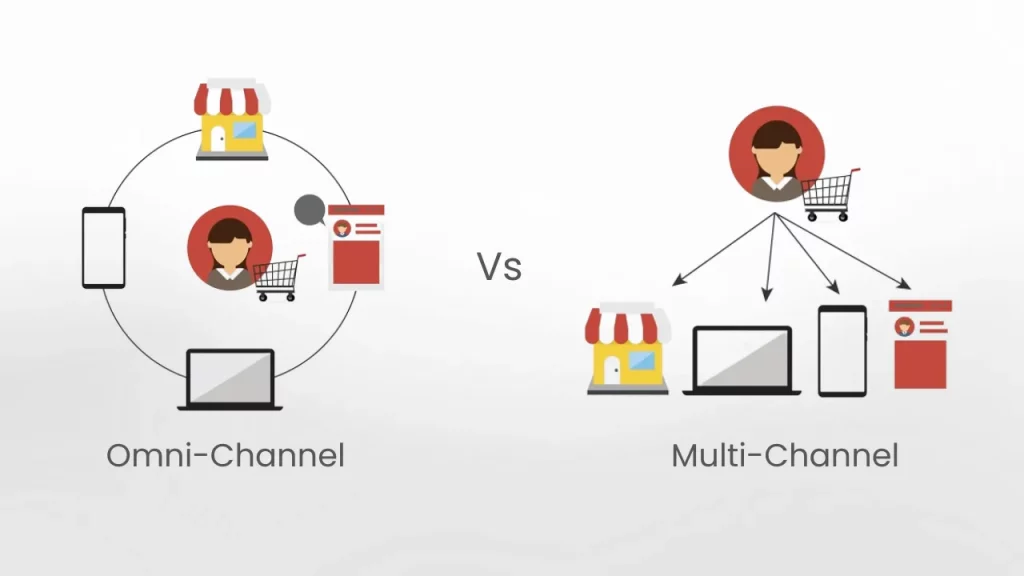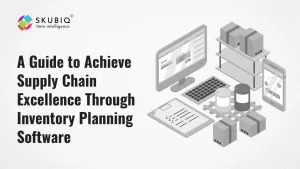In the ever-evolving landscape of e-commerce and retail, SKUBIQ has emerged as a pivotal player, offering innovative solutions to streamline operations. One of the critical decisions businesses face today is whether to adopt an omni-channel or multi-channel approach for their warehouse management systems. This choice can significantly impact the efficiency, scalability, and overall success of a business, especially when integrated with cloud-based solutions.
Understanding the Basics: Omni-Channel vs. Multi-Channel
Before delving into the nuances, it’s essential to grasp the fundamental differences between omni-channel and multi-channel strategies. While both involve selling products through various channels, the key disparity lies in the level of integration.
Multi-channel refers to a business’s presence across different platforms, such as online marketplaces, brick-and-mortar stores, and social media. Each channel operates independently, catering to a specific segment of the market. This approach is a stepping stone towards a more comprehensive strategy.
On the other hand, omni-channel takes integration to the next level. It focuses on creating a seamless customer experience across all channels. Whether a customer makes a purchase online, in-store, or via a mobile app, the experience remains consistent. This approach requires a robust technological backbone, often provided by cloud-based solutions.
The Role of Technology: Cloud-Based Solutions
In the realm of inventory management software, the shift towards cloud-based solutions has been transform ative. These solutions offer real-time visibility, scalability, and accessibility, making them indispensable for businesses adopting either an omni-channel or multi-channel approach.
With the ability to centralize d ata, cloud-based solutions enhance collaboration and communication between different channels. This is particularly crucial for businesses managing diverse channels simultaneously. Whether it’s tracking inventory levels, monitoring sales trends, or managing order fulfillment, a cloud-based system provides a unified platform for streamlined operations.
Omni vs. Multi-Channel in Warehouse Management
When it comes to warehouse management, the distinction between omni-channel and multi-channel becomes even more pronounced. A warehouse management system (WMS) is at the heart of effective inventory control, order fulfillment, and logistics management.
In a multi-channel setup, each sales channel often has its own inventory, order, and fulfillment processes. This can result in inefficiencies, duplicated efforts, and challenges in maintaining accurate stock levels. However, for businesses with a limited number of channels and straightforward operations, a multi-channel warehouse management approach might suffice.
On the contrary, an omni-channel warehouse management system integrates all channels into a single, cohesive platform. This provides a holistic view of inventory, orders, and fulfillment across all channels. The result is improved accuracy, reduced lead times, and a more efficient supply chain.
Navigating the Complexities: Order Management and Omnichannel Fulfillment
An integral aspect of the omni-channel vs. multi-channel debate is the order management system (OMS). In a multi-channel setup, each channel typically has its own order processing system. Coordinating and consolidating orders from various channels can be a daunting task.
Omnichannel fulfillment addresses this challenge by unifying order processing across all channels. This ensures that customers receive a consistent experience, regardless of the channel through which they make a purchase. An integrated OMS is a cornerstone of omnichannel success, facilitating order routing, inventory allocation, and shipment tracking.
Strategic Considerations: Customer Lifetime Value and Customer-Oriented Marketing
In the age of intense competition, businesses must not only attract customers but also retain them. The concept of customer lifetime value (CLV) becomes crucial in determining the long-term profitability of a customer. Omni-channel strategies, with their focus on seamless customer experiences, contribute significantly to increasing CLV.
Moreover, customer-oriented marketing thrives in an omnichannel environment. By leveraging data from various channels, businesses can tailor marketing strategies to individual customer preferences. This personalized approach enhances customer satisfaction, loyalty, and ultimately, the bottom line.
Method of Inventory Management: A Decisive Factor
Efficient inventory management is pivotal for success in both omni-channel and multi-channel environments. The method of inventory management employed can make or break a business. While a multi-channel approach may rely on separate inventories for each channel, an omni-channel strategy necessitates a centralized inventory.
Centralized inventory management offers real-time visibility, reducing the risk of overselling or stockouts. This not only enhances operational efficiency but also contributes to a positive customer experience. SKUBIQ’s inventory management software, designed with these principles in mind, becomes a valuable asset for businesses aiming for excellence.
Integrated Marketing Strategy: The Key to Success
In the quest for SaaS success, the integration of marketing strategies is paramount. An integrated marketing strategy aligns messaging, branding, and promotional efforts across all channels. This ensures a consistent brand image and message, resonating with customers regardless of where they encounter the brand.
Both omni-channel and multi-channel approaches require a thoughtful marketing strategy, but the former demands a more nuanced and integrated approach. The data gathered from various channels in an omni-channel setup can be leveraged to craft targeted and effective marketing campaigns.
Conclusion
In the realm of e-commerce and retail, the choice between omni-channel and multi-channel warehouse management systems is a decision that warrants careful consideration. The adoption of cloud-based solutions further accentuates the need for a strategic and forward-thinking approach.
Ultimately, the decision should align with the business’s scale, complexity, and growth aspirations. While a multi-channel approach might suffice for some, those aiming for a seamless, customer-centric experience should seriously consider embracing the power of SKUBIQ-enabled omni-channel solutions. The right choice today could pave the way for sustained success in the dynamic landscape of e-commerce.




